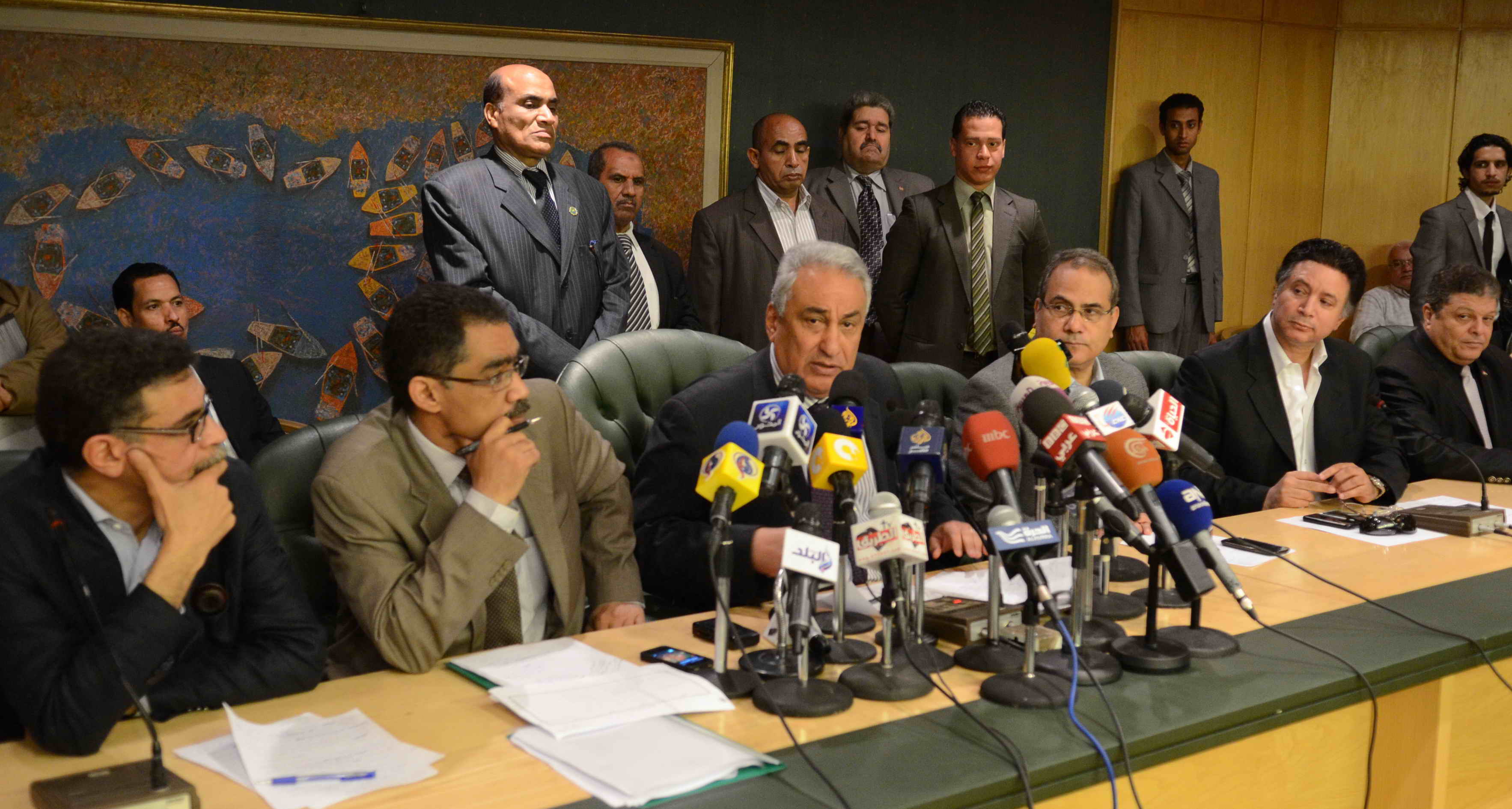CAIRO: A protest against the building of the Agrium plant in Damietta was stopped by security forces Sunday prior to a conference discussing the repercussions of the plant that took place at the Journalists’ Syndicate.
A 350-strong crowd that gathered in front of the syndicate on Sunday was dispersed by security forces. The economics committee was discussing the Agrium case within the premises.
Professor of Biochemistry at Alexandria University and Human Rights advocate Ashraf Al-Bayoumi was one of the speakers at the conference.
He told Daily News Egypt that the Agrium controversy was a symptom of “the so-called Open-Door Policy and our dependence on the United States economically and politically. This is the basic issue. We don’t have a concrete plan for development which integrates the protection of the environment as an important component.
He recounted a conference in the United States held by the chemical industry where the conclusion was reached “to export industries which require high energy and pollute the air and [do] not [use] advanced technology to developing countries. That is the key issue, multinationals and Western countries define our priorities and they export these polluting industries such as fertilizer and cement industries to countries like Mexico and Egypt.
“We have a corrupt government that hides the facts from the people or local representatives and the People’s Assembly. If you follow all the violations in the Agrium project you will be shocked, Bayoumi added.
Bayoumi said the speech he gave at the conference had been misquoted in the Egyptian press, claiming he had placed the blame on secularism when he had in fact been talking about ‘corporate’ scientists who sometimes hold back facts.
Bayoumi himself is a secularist. The words for secularist and scientists in Arabic are phonetically similar.
“We have to deal with Agrium because it is an immediate issue, but we must understand the core causes of these problems; corruption, local and abroad, and the lack of transparency, he said.
The conference was organized to discuss the petrochemical industry and its repercussions on the environment and tourism in the area. Present were representatives of civil society in Damietta.
“We are not against development. On the contrary we welcome petrochemical industries and other industries provided they are not harmful to densely-populated areas and also provided they are not linked to the priorities of American globalization, Bayoumi said.
“When I speak about the US I’m really speaking about industrial Western countries, the EU, Japan, Australia, Canada and the US, he added.
Agrium is a majority Canadian-owned company.
A lawyer affiliated with the yet unlicensed Wasat party, Essam Sultan, filed a complaint to the Prosecutor General’s office last week where he accused government entities of facilitating the paperwork for the plant without undertaking the necessary procedures for this process.
He also accused the company building the plant of being complicit in this.
“This factory received approvals and permits from different government entities in an illegal manner, Sultan previously told Daily News Egypt.
He added, “There was supposed to be an inspection by the General Authority for Industrial Development, upon which later permits should have been given. This inspection was never carried out. The other bodies were not legally permitted to grant their approvals without this one, yet they did grant their approvals and permits.
Sultan accused, amongst others, Agrium Egypt, the Damietta Port Authority, the Petrochemical Holding Company, the General Authority for Industrial Development, the General Authority for Investment and the Ministry for Environmental Affairs.
“They all agreed on this, Sultan said, “after the other approvals were given, this was given a year later. I submitted the necessary documentation to the District Attorney.
The District Attorney at the Prosecutor General’s office referred Sultan s complaint to the Public Finances Prosecutor’s office for investigationThe prosecutor’s office requested the required documentation from the concerned entities in preparation for questioning officials from each body.

